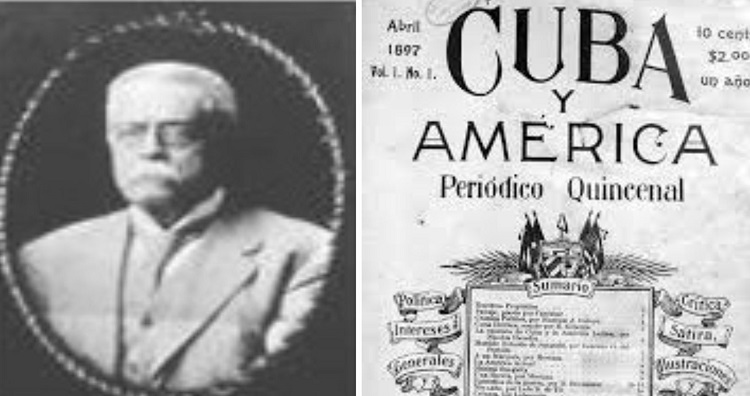HAVANA, Cuba.- Among the outstanding figures of the Cuban reformist movement of the 19th century, the poet Francisco Sellén is one of the least known. Born on a day like today in the year 1836, he began his studies in Spain, and once he returned to the Island he continued them at the Santo Ángel school. He collaborated with important printers of the time, such as Literary Cuba, Havana Magazine, El Siglo, La Opinion Y The Aurora, among others. Along with his brother Antonio founded the Cuban Heralda Spanish-English bilingual newspaper.
At the end of the 1860s, he was linked to the cream of the Havana aristocracy, divided between reformists and independentists. He met the teacher Rafael María de Mendive, joined the Reformist Party and actively conspired after the outbreak of the Ten Years’ War in 1868.
He was imprisoned and deported to Spain after an arms depot was seized. In 1869 he managed to escape to New York, where he enrolled in the “Hunters of Hatuey” expedition, in which he reached the rank of captain. The attempt failed and the poet returned to New York, where he devoted himself to teaching and journalism. In addition to collaborating with important media in the northern country, his work was included in the poetic collection friendly harps.
After the war of 1868, Sellén opposed the Zanjón Pact. In 1882 he briefly visited Havana, but soon returned to New York, where he helped José Martí found the Cuban Revolutionary Party, under which the definitive war for the island’s independence would be organized. He continued collaborating for media such as The Country, Cuba and America Y The Figaro.
He settled in Cuba in 1904. In addition to his work as head of the Statistics section in the Treasury Department, he dedicated himself to translating from the German language top works such as the collection of German poetry Echoes of the Rhinethe comedy Yelbade Scribes, and Bertram, tragedy of Mathurin. He has also translated several plays by Zacarías Werner and novels by Wilkie Collins, Robert L. Stevenson, Nathaniel Hawthorne, and F. Barrett.
Francisco Sellén wrote the dramatic poem “Hatuey”, a work of notable value in Cuban literature. Cultured man and defender of independence, before dying he donated his large literary collection to the National Library of Cuba.
Receive information from CubaNet on your cell phone through WhatsApp. Send us a message with the word “CUBA” on the phone +525545038831, You can also subscribe to our electronic newsletter by giving click here.
















